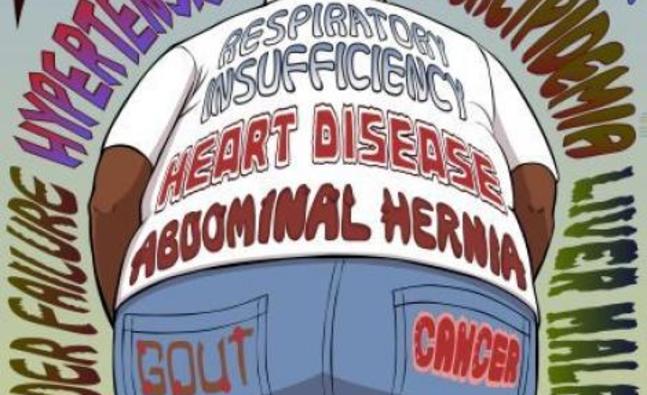The Science Behind Weight Loss For Women
Are you thinking to lose weight but are confused with how to go about it? Do you feel the need to know the science behind weight loss and how all those exercise regimens work? Then look no further and continue with this post!
Simply put, if you want to lose weight, you have to use more calories than you consume. Read on to know more of this!
Calories:
What are calories by the way? Calorie is the unit used to measure energy derived from the food and drink that we consume. Calories are present mainly in fats, carbohydrates and proteins. Our body needs this energy to function properly. When these calories or energy are in excess, our smart body starts storing it to use later on when needed. These stored calories get converted into fat.
Metabolism:
Now, what is metabolism and how is it related to weight loss? Mayo Clinic defines metabolism “as the process by which your body converts what you eat and drink into energy. During this complex biochemical process, calories in food and beverages are combined with oxygen to release the energy your body needs to function.”
Now, the number of calories your body needs and uses every day to perform its basic functions is called the Basal Metabolic Rate or BMR or Metabolism. You must have heard people blaming their slow metabolism for weight gain. Also, you must have seen physical trainers and nutritionists talking about all the ways you can boost your metabolism to lose weight fast. Again, it comes down to a simple equation – when you are burning all the calories you consume, your body does not get a chance to fill its treasure chest. This reduces the chances of weight gain.
Basal Metabolic Rate:
The next question that comes to your mind would be what determines this basal metabolic rate. Your BMR depends on many factors like your height, body size, composition, age and sex. Each factor contributes to how many calories you can consume and burn. The general way to determine this BMR is to multiply your weight in pounds with 10. Two other factors that contribute to your calorie need are food processing and physical activity. Basically, your BMR only accounts for 70% of your caloric needs. The rest consists of the energy required to consume food and how active you are throughout your day.
Weight Loss:
Now how do we lose weight? To lose weight we need to reverse the energy balance. We need to use more energy than we consume and create an energy deficit. In simple math, 1 pound is equal to 3500 calories. Therefore, if you want to lose a pound over a week, you need to create a calorie or energy deficit of 3500 calories which amounts to a daily deficit of 500 calories.
You can create that energy deficit by reducing your calorie intake and increasing your physical activity. Here come the concepts of diet and workout. Most women need around 1200-1500 calories to do their basic functions. So your diet must provide you with at least these many calories. The nutritionists, therefore, recommend a diet plan which limits itself on the calorie front, but contains all the vital nutrients, vitamins and minerals required for keeping your body healthy. Similarly, you should workout daily. When you are eating fewer calories than you use, your workout burns the calories stored in the form of fat around your body.
Other Factors:
This all sounds so simple, logical and rational. The problem that comes with this mathematical approach is that weight gain is not only caused by eating more. There are other factors included that should be taken into account while trying to lose weight:
1. Eating Less:
Yes, this is one of the foremost causes of weight gain that most people ignore. See, when you are not consuming as many calories as your body needs to function properly, your poor body starts fretting. So whenever you eat, it stores some of it away in the form of fat thinking that you might not give it any in the future. Same is the case with infrequent meals or meals with a lot of time gap between them.
Solution: Eat small meals frequently over the day. Most trainers recommend 6 small meals.
2. Stress:
Stress and lack of rest also mess up with your body’s energy consumption. You are overusing your body and not giving it anytime to repair and reboot itself. You need proper sleep and relaxation.
Solution: Start doing meditation. You should get at least 8 hours of sleep every day. Meditation helps in de-stressing and also helps in sleeping peacefully.
3. Hormonal Imbalances:
Hormonal imbalances can also result in weight gain and can even hinder your weight loss attempts. That is why most women gain weight either during their growth years or around menopause.
Solution: To deal with hormonal imbalances, you should start doing yoga and pranayama. But, it is good to take medical advice.
So, this is the basic science behind weight loss. It excludes genetic factors in weight gain and loss. But otherwise, it comes down to Eat Right, Exercise Right and Sleep Right.
Hope you liked the article. Are you also serious about losing weight? What methods are you planning to follow? Share with us in the comments section!
- DON'T MISS
- Tips for a balanced diet and weight loss plan: Hidden calories and toxins
- 5 Ways to eat well at work
- Heres What Makes the Ultimate Difference Between Resolving to Lose Weight and Actually Doing It
- How an apple a day keeps you slim
- The Holiday Treats You SHOULD Be Eating
- How to get slim for summer
- How to Turn Off Your Weight Gain Hormones
- Exercise tips for weight loss: The easiest & cheapest pre-workout supplement
- Could a lack of sleep make you fat?
- Are you making this daily mistake?




